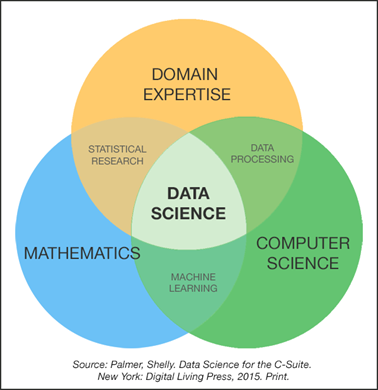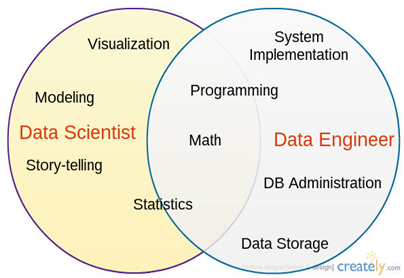The professionals of Data Science teams
Fecha de la noticia: 05-06-2018

In recent years we have been discovering new field to apply data science, as the solution of old problems that we can now solve thanks to the new techniques and methodologies that are available. Data science is being configured as a key capability for digital transformation and, therefore, companies from all industries and sectors are investing in the creation of data science teams.
Perhaps, this is the main reason for the current explosion of demand for data science jobs. We will use two data to illustrate this growth: in the period 2012-2017 the demand of these professionals has multiplied up to ten in the USA, and some studies, like this one of IBM, predict a growth of 28% until 2020. Spain is not an exception to this global trend: Big Data market grows 30% each year and, already in 2015, the demand of Big Data talent grew by 93%, according to a Cotec Foundation report.
The most common roles in the configuration of a data science team are data scientist, data engineer and business analyst, all working at the intersection of several disciplines: mathematics, computer science and, of course, knowledge of the business problems.

- The data scientist role is usually responsible for extracting knowledge and designing products based on data from exploration, creation and experimentation with models and visualizations. For all this, he usually use a combination of statistical, mathematical and programming techniques.
- The data engineer role, on the other hand, usually has the mission of designing and implementing infrastructures and software capable of managing the needs of data projects at the appropriate scale.
- The business analyst role brings knowledge related to the business problem to the team: the correct understanding of the results derived from the analysis and modeling of the data, as well as the application of the data-based products generated in the projects.
Normally we find professionals that work as engineer or data scientist with the most diverse training: either related to the sciences, such as mathematics, physics or statistics, or related to different engineering branches such as computer science, telecommunications, aeronautics or industrial engineer. Usually, they are people who have decided to lead their career to data science learning different masters or postgraduate offered by universities, MOOCs, or non-regulated training courses offered by companies aimed at their own staff or to attract talent.
Universities are also adapting to this market demand in order to provide more specific training and, in addition to the postgraduate programs, double degrees are becoming common, combining two of these disciplines such as computer science and statistics. We can even find course oriented to data science such as the bachelor´s degree in Science and Data Engineering, the bachelor´s degree in Mathematical Engineering in Data Science or the Degree in Data Science and Engineering.

The business analyst role, also called analytics translator or data translator is much more unique, because he/she must combine business knowledge with sufficient technical competence to understand data science problems and approaches and, thus, be an effective interface between data science team and business expectations.
The importance and uniqueness of this role means that companies are opting for large-scale internal training programs, so that professionals with a good knowledge of operations and a certain technical competence can lead their professional careers in this direction.
However, it is not an easy transition due to the traditional separation between science or engineering training, with very few competences related to business, and business disciplines, without practically technical competence. In this sense, there is a wide margin for improvement, so that university training goes into erasing these separation lines, in order to get people to acquire more complete training incorporating economics, marketing or programming in disciplines traditionally unconnected.
As Steve Jobs said and demonstrated, best ideas emerge from the intersection of technology and the humanities.
Content prepared by Jose Luis Marín, Head of Corporate Technology Startegy en MADISON MK and Euroalert CEO.
Contents and points of view expressed in this publication are the exclusive responsibility of its author.










